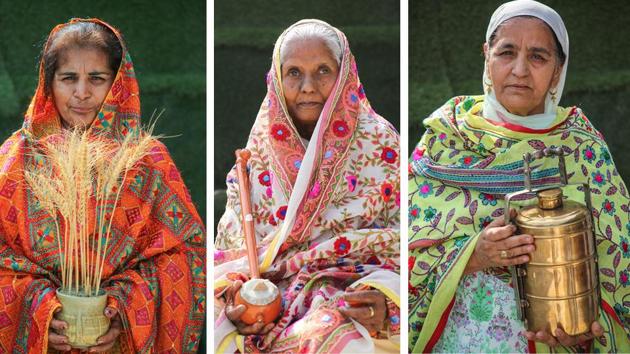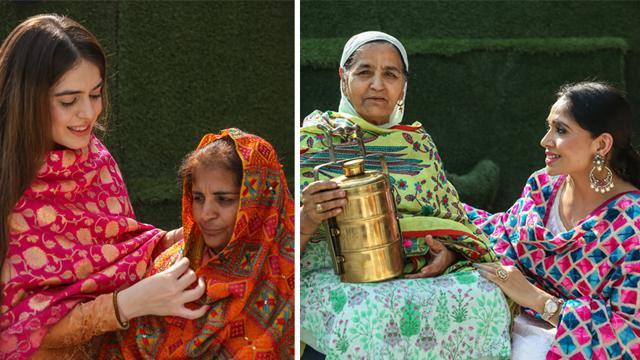A Baisakhi message: The only antidote to hate is compassion
We invited these gritty grandmoms from ‘Widow Colony’, Tilak Vihar, to celebrate the festival of new beginnings with us. As they shared beautiful insights into life, they told us this was their first-ever celebration after suffering a life-altering tragedy.
Baisakhi is not just a harvest festival. It also celebrates the Sikh New Year, which marks the coming together of the Khalsa panth of warriors by Guru Gobind Singh ji in 1699. Khalsa is derived from the Persian word ‘Khalisah’, which stands for being pure and clear. We invited four grandmoms from Tilak Vihar, also known as the ‘Widows Colony’, to celebrate this special day. These women have put up a courageous fight against adversities for several decades. Striving to overcome a sorrowful past, they have stayed true to the spirit of Khalsa — working hard, and not letting go of any opportunity to spread the message of love and peace. As they narrated their incredible tales, they stressed on why we need to keep repeating that love and only love has the magic to defeat hatred. We took these beautiful ladies to Ardor 2.1 restaurant, Connaught Place, where they celebrated the festival along with their lovely grandchildren. This was their first Baisakhi after the 1984 anti-Sikh riots. Punjabi singer Deep Money treated them to soul-stirring Punjabi folk music and danced with the children, much to their delight. Restaurateur Suveett Kalra served them lovingly prepared sumptuous thalis showcasing culinary gems from each state of India. After the mood-lifting lunch, the ladies dressed up in chikankari suits, phulkari dupattas and saris by designers Deepa and Karishma Sondhi, while the children wore colourful Khalsa T-shirts designed by Harinder Singh, owner, 1469. As everyone joyously posed for our camera, they spun magic moments that will be etched on our hearts forever.

‘Hold Your Head Up High’

Narender Kaur is famous for making the most delicious sarson ka saag in Tilak Nagar. Baisakhi is a day to celebrate one’s valour to face whatever life throws in your path, the 60-year-old told us. “Life is full of ups and downs. What matters is how you face them. And one should always face tough times with their head held high,” she said.
‘Always speak the truth, no matter what’

From Kala Sha Kala to Mera Laung Gawacha, 65-year-old Surinder Kaur loved singing folk songs as a young girl. Tragedy sapped her spirit and she couldn’t sing the same way anymore. As she celebrated Baisakhi with us, she once again became the young girl singing soulfully. Before departing, she shared what the day signifies for her. “Sachahu orai sabh ko upar sach achar (Truth is high but higher still is truthful living), said Guru Nanak. Today is a day to remember that one must always speak the truth, no matter what,” she said.
‘There’s no substitute to hard work’

Narender Kaur believes that the festival of Baisakhi represents new beginnings. The 69-year-old who runs a small utensils shop said, “You can’t spend your lives mulling over the past, regardless of how painful it was. The wounds may not heal but you have to let go.” Despite her age, she remains an authority in giddha dance. She didn’t hesitate to take over the dance floor for a few minutes. Her Baisakhi message for one and all was: Dharam di kirat karni — To always work hard and work honestly.
‘Work for a humane world’

For 57-year-old Harjit Kaur, the day is all about remembering and inculcating the teaching of Gurus in young ones. The woman who makes the most colourful Patiala suits in the colony said, “Sikhism teaches that everyone is equal in God’s eyes. Our children are our future. For a humane future, our children should understand the significance of these values.”
A Baisakhi to remember










